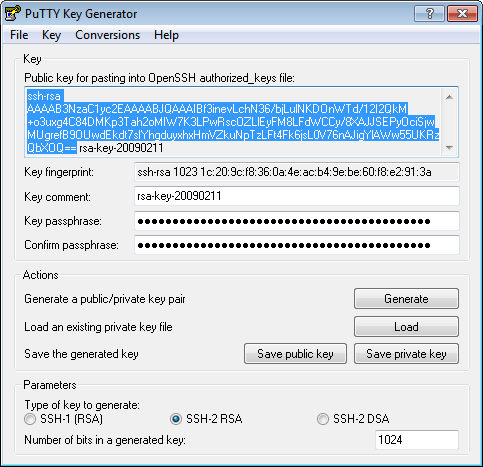


Make a note of the location that you save both of these files as you will need these to make a connection to your Raspberry Pi. Thirdly ( 3.) we need to save the public key and the private key to somewhere safe on the computer. However, we do not recommend doing this if you value your security.
SSH COPY KEYS PASSWORD
If you would prefer not to have to enter a password at all, then you can skip this step and leave the two fields empty. This passkey acts as a second line of defense. Secondly ( 2.) you should set a passkey, this ensures that even if someone managed to steal your private SSH key, they would still need to enter a password. The first ( 1.) is to set a name for this SSH key, make this something memorable, so you know what SSH key is required when connecting. Pressing this button will generate the public and private SSH keys that we will use to make our SSH connection to our device, in our case this will be the Raspberry Pi.Ĥ. With the SSH keys now generated, there are a few more things that you need to do.
SSH COPY KEYS FULL
Make sure you get the full package version as this includes the piece of software that we need to generate the SSH Keys for your Raspberry Pi.ġ. Once you have downloaded and installed PuTTY to your computer go ahead and open up the program that was installed alongside it called PuTTYgen.Ģ. With PuTTYgen opened on your computer, click the “ Generate” button as we have shown in the image below. You can download PuTTY from their website. To generate SSH keys on a Windows-based operating system, we will have to rely on a piece of software called PuTTY. Equipment Listīelow are all the pieces of equipment that I made use of for this Raspberry Pi SSH Keys Authentication tutorial. A standard SSH Key is usually 2048 characters long, compared to a password that is no longer than 32 characters. If you value your security SSH Keys is something you should set up, it offers a few security benefits over password authentication.įor starters, it is much harder for an attacker to be able to intercept and is also much more complicated to brute force. These SSH keys act as a means of identifying yourself to the SSH server using public-key cryptography and challenge-response authentication. This works by generating an SSH Key pair, you will retain the SSH private key, but the public key will go onto the Raspberry Pi’s operating system. Using SSH Keys for authentication is an excellent way of securing your Raspberry Pi as only someone with the private SSH key will be able to authenticate to your system.


 0 kommentar(er)
0 kommentar(er)
